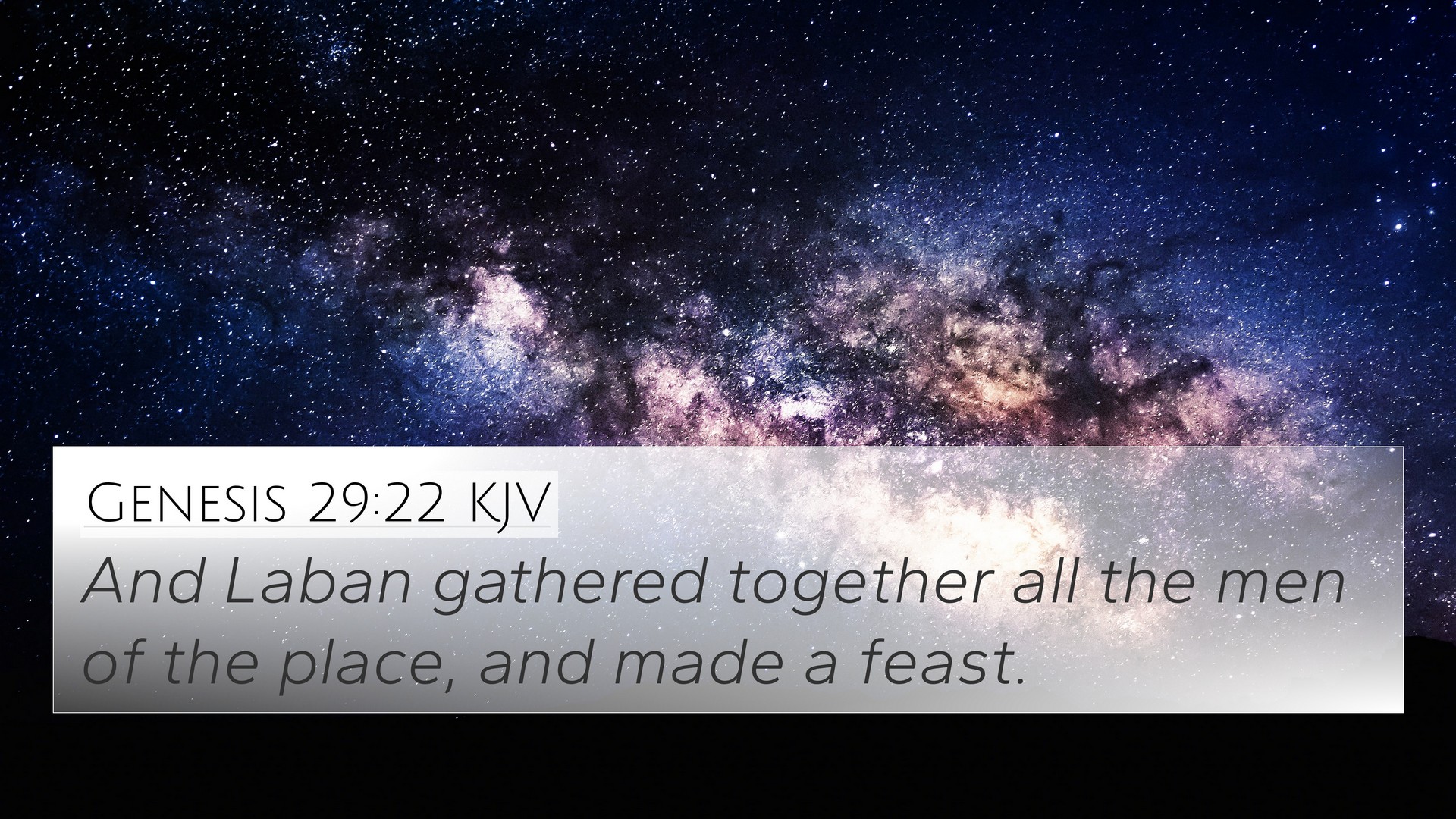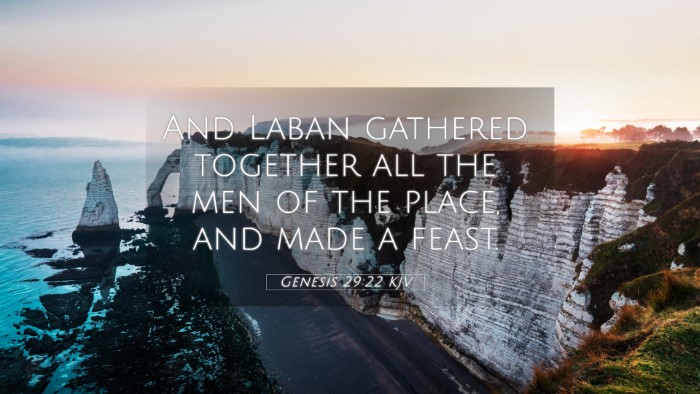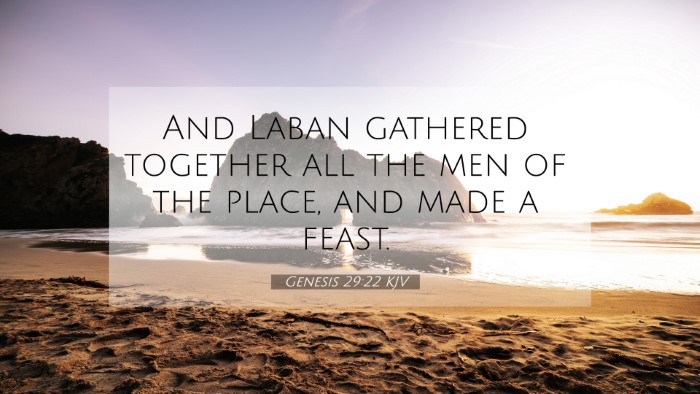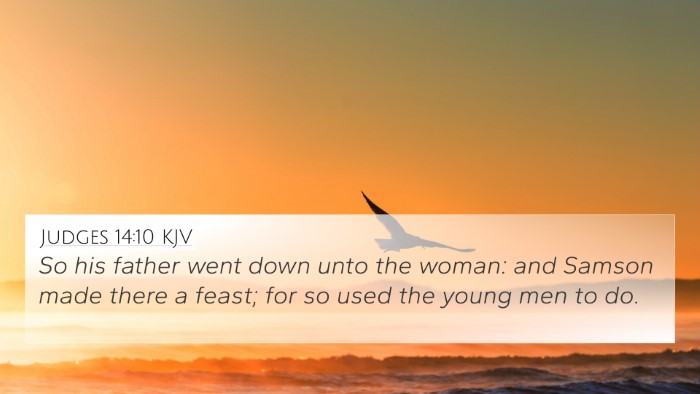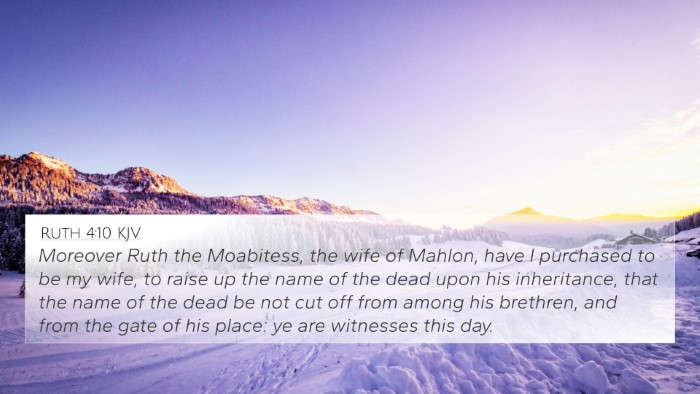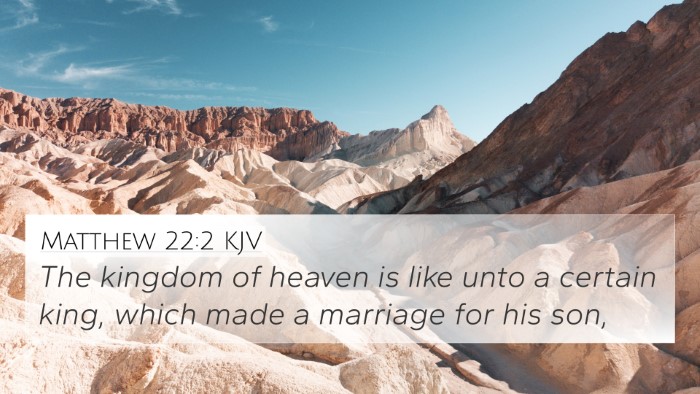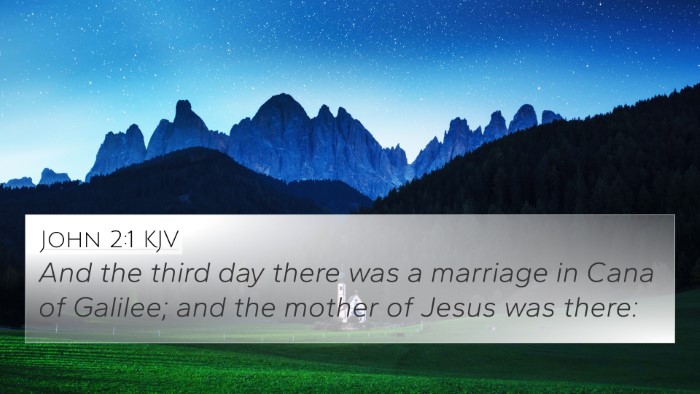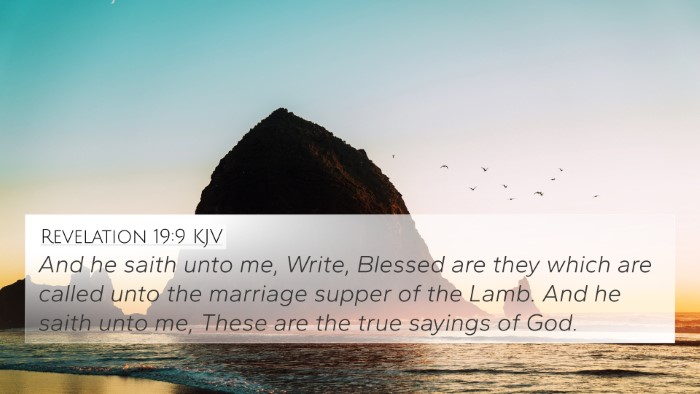Understanding Genesis 29:22
Genesis 29:22 states: "And Laban gathered together all the men of the place, and made a feast." This moment in the narrative marks a significant event in the story of Jacob and his journey towards his family’s formation and future Israelite lineage.
Verse Analysis
This verse occurs within the context of Jacob falling in love with Rachel, Laban's daughter. Jacob has already worked seven years for Laban, expecting to marry Rachel. However, Laban deceives him, and this verse follows right before the wedding.
Commentary Insights
Commentators such as Matthew Henry, Albert Barnes, and Adam Clarke provide various insights into this verse, revealing deeper meanings and connections to other scriptures.
-
Matthew Henry:
Henry emphasizes the significance of Laban's feast indicating a celebratory occasion. The gathering also highlights Laban's role as the patriarch of the household, demonstrating the customs associated with marriage in that culture.
-
Albert Barnes:
Barnes discusses how Laban's actions reflect common practices of hospitality and the importance of community in wedding festivities. It shows Laban's intent to create an elaborate event, potentially masking his deceit against Jacob.
-
Adam Clarke:
Clarke suggests that the feast's arrangement indicates not only joy but also Laban's cleverness. He planned the event, knowing the deception he had already enacted upon Jacob regarding the marriage arrangements.
Bible Verse Cross-References
Genesis 29:22 connects with several other scriptures that reflect themes of familial relationships, deception, and the importance of weddings:
- Genesis 24:67: This verse recounts Isaac bringing Rebecca into his mother’s tent, showing a moment of marital joy.
- Genesis 27:35: Here, Isaac discovers the deception of Jacob, drawing parallels to Jacob's own experiences with Laban.
- Genesis 31:41: This verse continues the theme of Jacob's struggles and Laben's manipulation, emphasizing ongoing tensions in their relationship.
- 1 Timothy 3:2: This New Testament verse values the role of marriage and family, connecting back to Genesis and the institution of marriage.
- Matthew 19:5-6: Here, Jesus emphasizes the permanence of marriage, echoing the commitment seen in Jacob and Rachel’s story.
- John 2:1-11: The wedding at Cana illustrates a celebration similar to Laban's feast, connecting Old and New Testament themes of joy and covenant.
- Ruth 4:10-11: Boaz’s marriage to Ruth parallels Laban’s hospitable celebration, emphasizing the importance of family lineage.
Thematic Bible Verse Connections
Throughout Scripture, the themes present in Genesis 29:22 appear recurrently, providing a network of inter-Biblical dialogue:
- Hospitality and Celebration: The practice of gathering for a feast, especially marriages, underscores important cultural norms in the Biblical narrative.
- Deception: Jacob's future encounters with Laban highlight the recurring themes of deceit found in relationships (e.g., Esau's birthright, Laban's marriage trick).
- Family Dynamics: The underlying issues of familial loyalty and betrayal resonate into later narratives, including David's family and Jesus' teachings about honor.
Practical Applications
This verse reminds us of the importance of commitment, both in familial and marital relationships. As believers reflecting on these themes encourages evaluating our own relationships and the values of honesty and loyalty.
How to Use Bible Cross-References
Understanding the connections between Bible verses, as seen in Genesis 29:22, can enhance your study of Scripture. Here are some tools and methods to effectively utilize cross-references:
- Use a Bible concordance to find related texts quickly.
- Employ a Bible cross-reference guide for more in-depth studies.
- Consider a cross-reference Bible study system to explore relationships between verses in-depth.
Conclusion
Genesis 29:22 serves not only as a historical account but also opens a gateway for thematic explorations through cross-references to other scriptures. By recognizing these connections, we can better understand the narrative and its implications for our faith journeys, morality, and relational commitments.
Final Thoughts
In conclusion, studying Genesis 29:22 in light of public domain commentaries helps illuminate the deeper meaning and context of this passage. Reflecting on its themes and connections to other scriptures enriches our understanding of the Bible.
